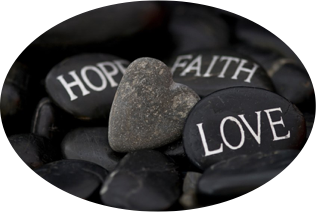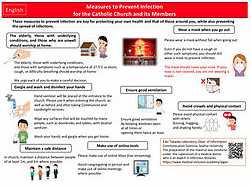The Greatest Commandment

(Matthew 22:34-40) Homily by Fr. Jerry Cusumano, SJ 30th Sunday in Ordinary Time at 12 Noon Mass ~ St. Ignatius Church
Background
This incident occurs in the week before the Passion of the Lord. Three groups, Sadducees, Pharisees, and Herodians, usually at odds with each other, have joined forces to stop Jesus. They have already tried twice to trap him, once with the question of whether it was right to pay taxes to Rome and once with a reductio ad absurdum about a woman marrying seven brothers in succession. He has foiled them both times, once with his guidance that Caesar must be given what is his and God what is His, and once with pointing out that there will be no marrying at the resurrection. Today’s Gospel is the third encounter.
The Lawyer
A lawyer addresses Jesus asking about the greatest commandment. He does not seem to be hostile to Jesus, but neither does he come across as a true seeker of the way. Rather he just seems to want to engage Jesus in a theological discussion. There were over 600 rules and precepts to be kept. The pious Jew, however, did not prioritize them, but rather resolved to keep all of them with the same fervor. Nevertheless, there had been attempts before Jesus to find the most important of the commandments. King David had said there were eleven, the Prophet Isaiah, six, and the Prophet Micah three.
The Approach of Jesus
Jesus combines two passages from the Old Testament to answer the lawyer. In this there is nothing new. What is new is that he shifts the discussion from one’s conduct, the acts required to keep a commandment, to one’s character, the state of mind one should have.
The First Commandment
The commandment to love God is first because of the object, God himself, and because of the manner in which it is to be kept, namely, wholeheartedly, or more colloquially, giving it all we’ve got. In our secular society many would like to ignore this commandment and elevate the second one in its place. However, there can be no brotherhood of men without the fatherhood of God. Eating the apple and attaining the knowledge of good and evil as we read in Genesis has ruined men’s relationship with each other. A striking description of this is given in the novel, The Shack. Good and evil have now become subjective judgments. What is good for me is good, and evil for me is evil. However, what is good for me is often bad for others. This is why universal brotherhood is unattainable without keeping the First Commandment.
The Second Commandment
We are asked to love others as we love ourselves. C.S. Lewis asked himself how he loved himself and answered that one of the chief ways he loved himself was to always be making excuses for himself. “I was too busy to pray.” “I needed to do that to relieve my stress.” “If I had told the truth that I did it, the problem would have gotten worse.” And so on and so on.
It follows then that to love my neighbor as myself I must learn to make excuses for him. In her book, The How of Happiness, Sonya Lyubomirsky gives an exercise on how to do this. Whenever we see a “bad” behavior we find irritating, we should try generating alternative reasons for that “bad” behavior. For those of us who live in Japan a good example might be “kakekomi,” rushing to get in to the train before the doors close. We see a young fellow running and pushing others aside to get in to the train. Our spontaneous thought is: “What a reckless and foolish jerk!” Sonya says generate another alternative to explain that behavior. One might be: “He has just had a call from the hospital. The doctor has said his mother is in critical condition and he should come at once.” Seen from this light the behavior takes on new meaning. In this way we become less judgmental, broaden our way of thinking, and learn to “love” our neighbor as ourselves.
Personal Comment
Finally, I would like to add a personal comment on today’s Gospel. I find the word “love” hard to resonate with in this context. I associate the word with romantic and/or affectionate feelings. I myself prefer a word used by the first missionaries to Japan in an age when the Japanese language had no word for love. Instead the word used was “gotaisetsu” which is translated as “you are important to me.” The early missionaries and Christians used this word. However, each of us today can re-phrase the commandments in words that are meaningful to him I think.

 ENGLISH
ENGLISH  ESPAÑOL
ESPAÑOL 







